How to Choose a Home Safe?
April 18, 2023
When choosing a home safe, there are many factors to consider. Fire protection is essential, but you must also consider the space you need and the locking mechanisms you prefer. This guide will walk you through everything you need to know to choose the perfect home safe for your needs.
What to Look For When Choosing a Home Safe?
If you’re looking for a way to protect your valuables from fire or theft, you’ll need to invest in a good quality home safe. But with so many different types and brands on the market, how do you know which one is right for you?
Here are a few things to consider when choosing a home safe:
Fire Protection
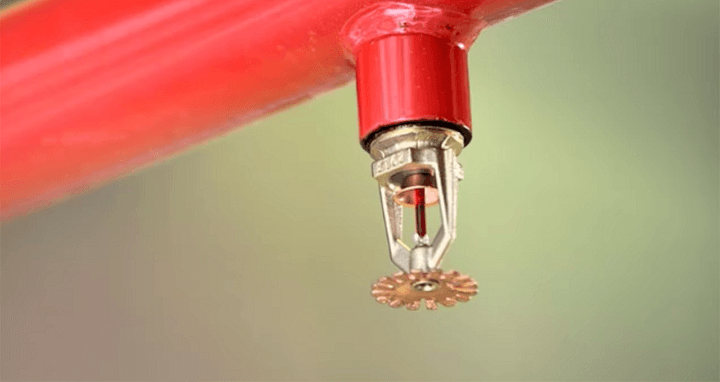
Look for a fire-resistant safe that has been tested and certified by a reputable organization like Underwriters Laboratories (UL). The higher the fire rating, the better to protect valuables from a house fire.
Burglary Protection
Choose a safe to resist attack from portable electric tools like drills and saws or has theft protection.
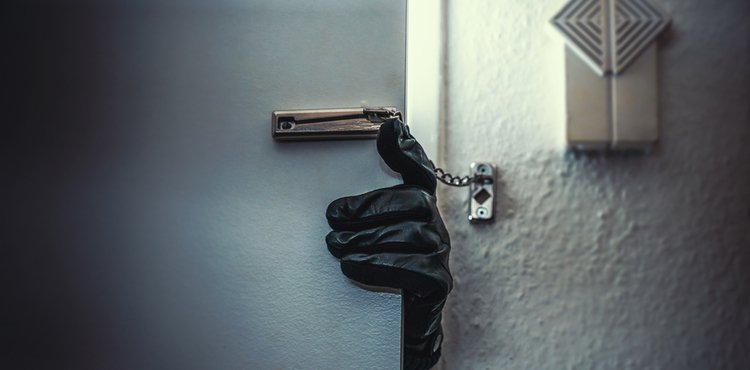
Water Resistance

If you live in an area prone to flooding, look for a water-resistant safe to protect your valuable items such as sensitive data and birth certificates.
Storage Capacity
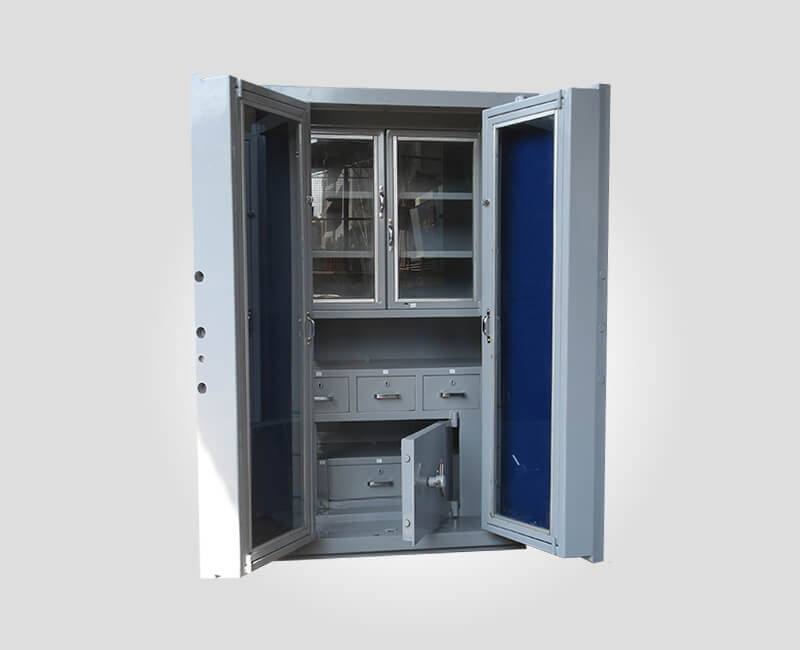
Make sure to choose a big high-quality safe to store all valuables, including important documents, precious store jewelry, and emergency cash.
Locking Mechanism
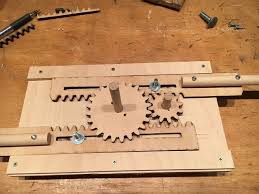
The type of locking mechanism is necessary to consider. Essentials come with electronic or biometric locks, while others have traditional keys. However, biometric safe is more advisable since it has higher security.
Price

Don’t sacrifice quality for the price by choosing a cheap safe. A good quality safe will last you a lifetime and is worth the investment.
Once you’ve considered all of these factors, you’ll be able to choose the right home safe for your needs.
Size and Capacity of the Safe
When choosing a home safe, there are many factors to consider. The size and capacity of the safe are essential, as well as the fire rating.
Fire-resistant safes are available in different sizes and with varying fire ratings, so choosing one that will protect your valuable items from fire is essential.
Safes have other locking mechanisms, such as electronic locks, key locks, or combination dial locks. Some safes also have biometric locks, which allow you to access the safe with your fingerprint.
When choosing a safe, you must consider what you will be storing. If you plan on storing cash or other valuables, you will want a safe with a good fire rating since it has fire retardant material.
For important documents, you may want a safe that is water-resistant. If you plan on storing guns, you will want a gun safe that is tool resistant.
The construction of the safe is also essential. Safes are made from different materials, such as steel, aluminum, or concrete.
Some safes have walls that are thicker than others. The thickness of the safe’s walls will affect how well it resists fire and how secure it is from thieves.
When choosing a home safe, it is essential to consider all of these factors. Choosing and selecting the right safe for your needs ensures that your valuables are well-protected.
The Type of Lock on the Safe
There are three main types of locks – electronic, essential, and combination.
Electronic Locks
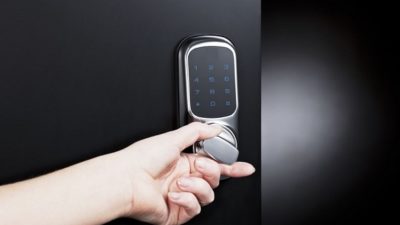
An electronic lock is the most popular choice as it offers the highest security level for theft protection.
Key locks
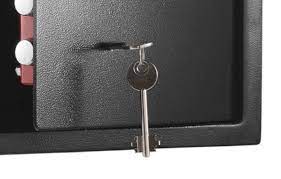
A key lock is a good option if you want to be able to open the safe without power.
Combination Locks
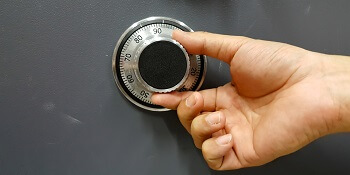
A combination dial lock provides a good balance of security and convenience.
Other Factors to Consider in Choosing a Home Safe
When choosing a home safe, there are many factors to consider. Here are some things to keep in mind when making your decision:
The fire rating of the safe
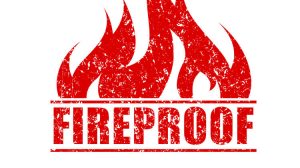
This is how long the security safe can withstand high temperatures before the contents degrade. A higher fire rating means that your valuables will be better protected in the event.
The size of the safe

Make sure to choose a large enough and good quality to secure to store your valuables, including documents, cash, jewelry, and other precious items.
The security features of the safe
Look for home safes with extra security features like an alarm system or biometric lock. These will deter thieves and give you peace of mind knowing that your valuables are well-protected.
Choosing suitable home safes can seem daunting with many factors. But by keeping these things in mind, you can be sure to find a safe that meets all of your needs.
Whether or Not the Safe is Fireproof
When protecting your valuables, you want to make sure you choose the home safes that will offer the best possible protection. But how do you know if a safe is fireproof?
There are a few things to look for when choosing a fireproof safe.
- First, check the fire rating. This will tell you how long the home safes can withstand intense heat before the contents begin to deteriorate.
- The next thing to look for is the fire-resistance rating. This will show how long the safe can resist fire without damaging the contents.
- Finally, check the safe manufacturers’ specifications to see if the home safe is fireproof. If it is, you can be sure it will offer the best protection for your valuables.
Whether or not The Safe is Water-Proof
There are many factors to consider when determining whether something is waterproof. The most crucial factor is the material the item is made of.
- Water-proof materials include rubber, plastic, and certain kinds of fabric. If the item is made of one of these materials, it is more likely to be water-proof.
- Another essential factor to consider is the item’s construction. If an item is well-constructed and has no gaps, it is more likely to be water-proof.
- Finally, the environment in which the item will be used is essential. It is more likely to be water-proof if the item is used in a wet climate.
What are the Security Features
Several security features come with purchasing a home security system to protect valuables in your home safes. These features help to protect your home and family from criminals and intruders. Some of the most common security features include:
Alarm systems
Alarm systems can be set up to notify you or the police in the event of an intruder.
Cameras
Cameras can monitor your home and monitor activities inside and outside of your home.
Motion sensors
Motion sensors can detect movement in your home and alert you or the police if there is an intruder.
Window and door sensors
window and door sensors can detect when a window or door is opened and alert you or the police if there is an intruder.
These are just a few of the security features that are available with a home security system. Choosing these features can help protect your home safes and family from criminals and intruders.
Ease of use
As your family grows, so does the number of valuables and important documents you need to keep safe.
Home safes are a perfect solution for keeping your belongings protected, but choosing one that will be easy for you to use daily is essential.
One of the most important things to consider when choosing a home safe is how easy it will be to use daily.
It will help if you are looking for a safe with a simple, user-friendly interface so that you can easily access your belongings when needed.
How Easy it is to Install a Home Safe
Installing a home security safe can seem daunting, but it doesn’t have to be. You can easily install a home safe with some planning and the right tools.
The first step is to choose the right location for your home safe. You’ll want to select a spot that is out of the way but still easily accessible. Once you’ve chosen the site, you’ll need to gather the following tools:
With these tools, you’re ready to start installing your home safe. The first step is to drill pilot holes into the wall or floor where you’ve chosen to install the safe. Next, use the screws that came with the safe to secure it in place. Finally, use the level to make sure the safe is level and secure.
Once your home safe is installed, you can rest assured that your valuables are safe and sound. And installing the safe is easier than you might think!
The Price of The Safe
The saying goes, “There’s no such thing as a free lunch.” The same is true for safes. While many different types and models of safes are on the market, they all come with a price tag.
The cost of a safe can vary widely depending on its size, features, and level of security. An essential home safe may cost as little as $50, while a high-end commercial safe can efficiently run into thousands of dollars.
When deciding how much to spend on a safe, you must consider what you’ll be using it for and how much protection you need.
A less expert model may be all you need if you’re looking for a way to keep your valuables safe from fire or theft.
But if you’re looking to protect sensitive documents or large amounts of cash, you’ll need to invest in a more secure safe.
No matter your budget, a safe out there will meet your needs. So don’t be afraid to shop around and find the right one for you.
What are the Things to Avoid When Choosing a Home Safe?
There are a few things you’ll want to avoid when choosing a home safe.
- First, ensure the safe is big enough to fit everything you need to store inside. You don’t want to constantly move things around to make them work or end up with a lot of space.
- Second, be sure to pick a safe that’s made of solid materials. You don’t want something that can be easily broken into or damaged. The last thing you want is your safe to be the weak link to your home security.
- Finally, make sure you choose a safe with a good warranty. This way, you’ll be covered if anything happens to it. A good home safe is an investment, so you’ll want to ensure it’s protected.
Conclusion
When safeguarding your valuables, consider looking for a safe with a fire rating of at least 1/4-10. This means it can withstand temperatures up to 1,400 degrees Fahrenheit for at least 10 minutes. If you live in an area where flooding is a concern, look for a water-resistant safe. It is also important to consider the locking mechanisms. Key locks are the most basic and can be opened with a key. Combination locks require you to enter a code to open the safe. Electronic locks use a fingerprint or other biometric data to open the safe.
When deciding the size of the safe, think about all the valuables you want to secure inside it and their content value, which is the amount of money the insurance company will reimburse you if the contents of the safe are lost or damaged. Choose a safe with a content value that meets your needs.
When it comes to safety features, look for a safe with extra security features such as an alarm system or a hidden compartment.
